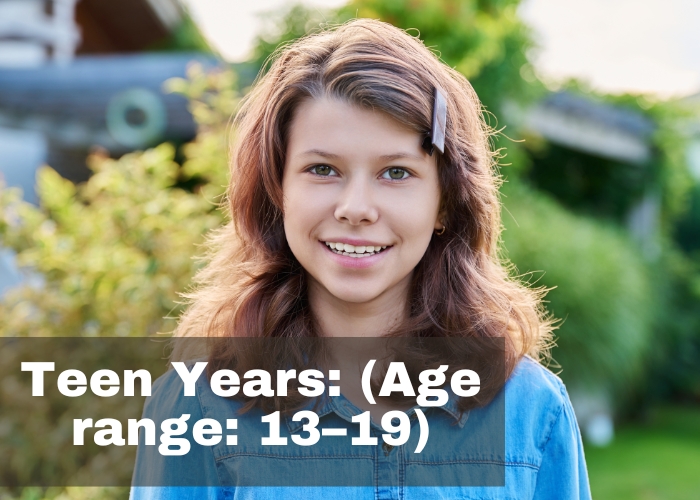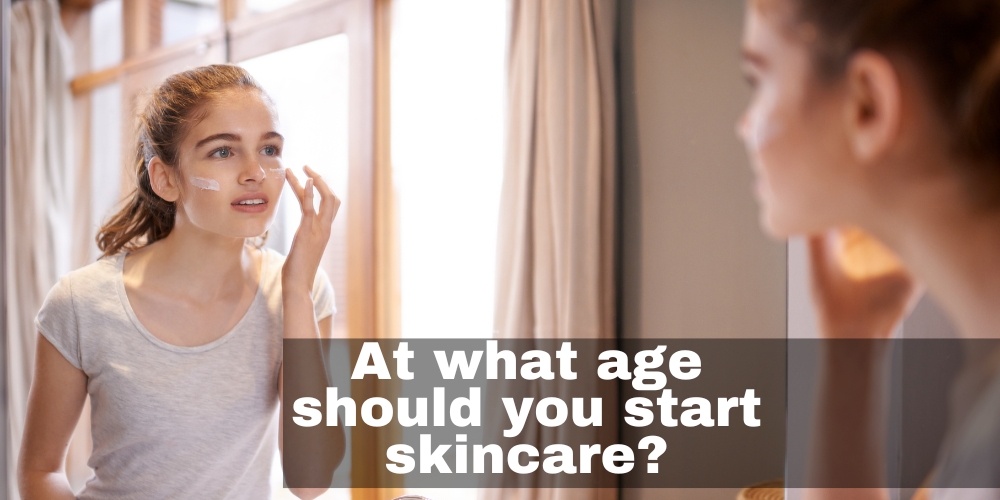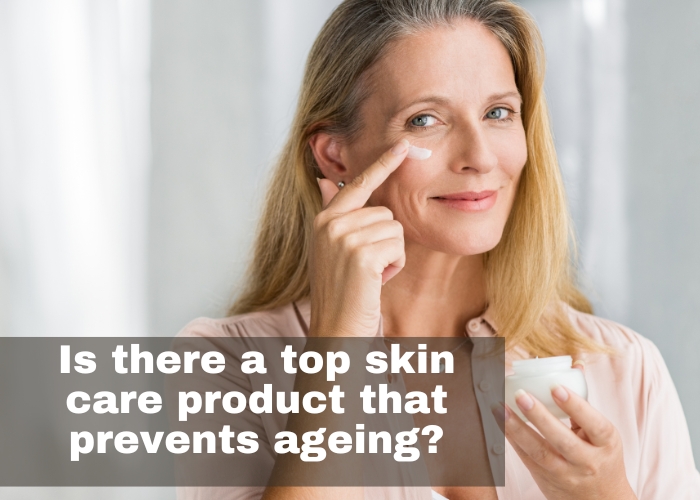Anyone who wishes to receive compliments on their appearance must have beautiful skin since, as we all know, a good comment helps one develop a better, healthier self-image. When we first meet someone, they will likely take one look at our skin, our eyes, and our faces before making an opinion of us. We all judge sometimes, but it’s normal and not always the case. Let’s talk about What age you should start skincare!
Consider those who have ageing or lousy skin and how it makes us feel. We would much rather see beautiful, well-maintained skin. A healthy shine to our skin is appealing, and when we receive compliments from others, it boosts our self-esteem and confidence. It is a proven truth that the earlier you begin, the less likely you will have early-life wrinkles to worry about. Since prevention is always preferable to treatment, starting early will help delay the consequences of aging for much more.
What age is best to begin anti-aging skin care?
Good skin care practices ought to begin as soon as we can maintain them, says Christenson.
“I see kids as young as 10,” adds Christenson. I instruct them on skin care techniques, such as cleansing their faces, moisturising their bodies, and—possibly most importantly—using sunscreen. One of our organs is our skin. As with anything else, we must begin caring for it from the moment of our birth.” Christenson describes basic routines as crucial because they nourish the skin, shield it from the sun’s damaging UV rays, and keep it free of bacteria and allergens. All aid in delaying the aging of the skin. However, Christenson notes that your skin ages with you, even in this case.
Let’s examine the many phases of life and how you can modify your skincare regimen to suit your skin’s needs at each stage of life.
Early Life (Ages 0–12)
Emphasis: Sun Protection and Gentle Cleaning
Although an extensive skincare regimen is not essential for young children, instilling positive skincare habits at a young age might pave the way for future skin health. Make sure that kids:
- Cleanse Gently: Use a moderate, gentle cleanser to keep your skin clean without depriving it of its natural oils.
- Sun Protection: When spending a lot of time outside, especially on sensitive skin, use a broad-spectrum sunscreen with at least SPF 30 to shield your skin from damaging UV rays.
Teen Years: (Age range: 13–19)

Managing Acne and Controlling Oil
The teenage years are frequently when hormonal changes that can cause acne and greasy skin make skincare even more critical. Teens should concentrate on the following:
- Clean Frequently: To eliminate pollutants, oil, and grime, use a mild cleanser twice daily.
- Exfoliate: To help unclog pores and lessen acne, use a light exfoliator a few times weekly.
- Treatment for Acne: To control outbreaks, use medicines that contain benzoyl peroxide or salicylic acid. Apply a moisturiser that doesn’t contain oil or comedogenic ingredients to keep skin nourished without blocking pores.
- Sun Protection: To prevent sun damage, keep using sunscreen every day.
Early Adulthood (19–29 Years Old)
Focus: Hydration and Preventive Care
The first aging indicators appear in your twenties, and your skin may still heal from teenage acne. Pay attention to:
- Regular Cleaning: Try to stick to a twice-daily cleaning schedule.
- Hydration: To keep your skin hydrated, use a high-quality moisturiser.
- Antioxidants: To prevent environmental damage and increase the creation of collagen, include products containing antioxidants, such as vitamin C.
- UV Protection: Sunscreen is necessary to stop UV damage and early ageing.
30s (Age Range: 30-39)
Priority: Early Repair and Anti-Aging
When addressing early indicators of ageing, such as fine lines and lack of suppleness, you should start using more anti-aging treatments in your thirties.
- Retinoids: To increase collagen synthesis and cell turnover, begin utilising retinoids.
- Eye Cream: To treat fine wrinkles and dark circles under the eyes, use an eye cream.
- Hydrating Serums: Use serums containing hyaluronic acid to stay hydrated and plump.
- Exfoliation: To encourage cell renewal, keep up your regular exfoliation schedule.
- Sun Protection: To prevent more sun damage, always wear sunscreen.
40 and Up (Forties and Beyond)
Emphasis: Deep Hydration and Advanced Anti-Aging
Your skin will benefit from more extensive care throughout your forties and beyond to address the underlying symptoms of ageing.
- Rich Moisturisers: Using more prosperous and moisturising creams to fight dryness and preserve the skin’s barrier’s integrity.
- Retinoids: Keep using retinoids; if your skin allows it, you can increase strength.
- Peptides: Use products high in peptides to help collagen and elastin.
- Anti-Aging Treatments: For more noticeable outcomes, think about professional procedures like chemical peels, microdermabrasion, or laser treatments.
- Sun Protection: To protect mature skin, wear a broad-spectrum sunscreen daily.
Is there a top skin care product that prevents ageing?
There are only so many possibilities. Which one, therefore, ought you to select? Generally speaking, it depends. According to Christenson, “anti-aging is customised to every skin type.” And if you’re using what Instagram tells you to buy, it’s pretty simple to get this incorrect. Because of this, I constantly ask them to bring their products or send me a picture of what they’re using. I usually inform them that some items they use are inappropriate for their skin type.” She continues by saying that you should identify your individual needs for anti-aging treatment before deciding which products would be best.
Overall Advice for All Ages
Healthy Lifestyle: For general skin health, eat a balanced diet, drink enough water, exercise frequently, and get enough sleep.
Steer clear of smoking and excessive alcohol consumption, as they can hasten the aging process and harm the skin.
Frequent Dermatologist Visits: Make an appointment for routine dermatological examinations to discuss skin issues and receive tailored guidance.
Conclusion:
Caring for your skin is essential to having beautiful, healthy skin all your life. On the other hand, many people are still determining the best time to begin a skincare regimen. It’s never too early to start caring for your skin. Your skin’s health and appearance can benefit from beginning a skincare regimen at any age. You can always have healthy, radiant skin by customising your skincare regimen to your age and skin type.


